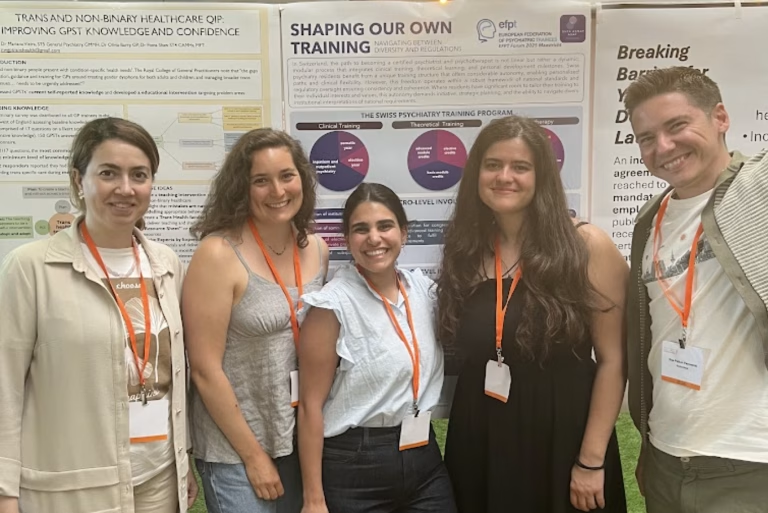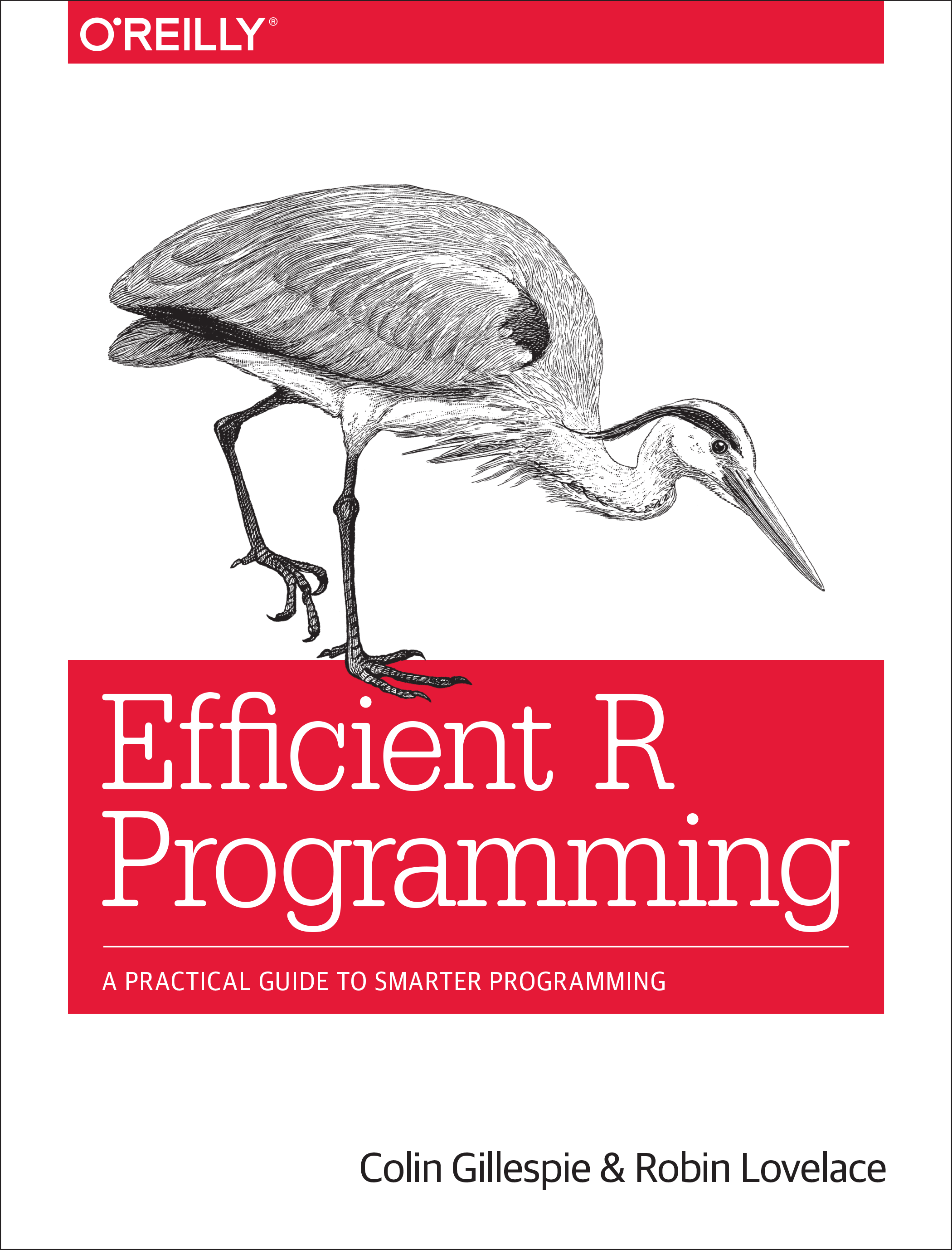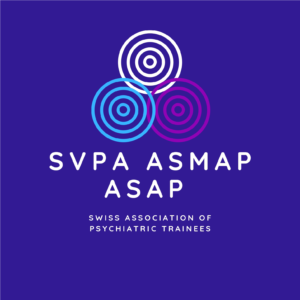Research
Engaging in research as a trainee

Career, Curiosity and Personal Growth
Why engage in research?
Research is much more than an academic exercise – it is a vital part of psychiatric training. By engaging in research, trainees sharpen their critical thinking, deepen their clinical knowledge, and gain the skills to evaluate evidence with a rigorous eye. Research also keeps you up to date with emerging treatments, helps you refine your understanding of complex psychiatric conditions, and allows you to contribute directly to the evolution of mental health care.
For psychiatric trainees, taking part in research is not only about strengthening clinical and scientific skills. It is also about shaping the future of our profession, fostering innovation, and ensuring that the next generation of psychiatrists can provide patients with the highest possible standard of care.
Yes, research programms can count for up to 1 year of postgraduate training, provided it is carried out within the field of psychiatry and psychotherapy and at a recognised training institution with appropriate infrastructure.
Good to know: Many training institutions and psychiatric clinics offer protected time for research activities. Whenever possible, accept only such conditions, in order to safeguard your physical and mental wellbeing during what can be an intense and demanding phase of your career.
Recommendation: contact the Title Commission (TK) via the SIWF secretariat in advance to clarify eligibility.
Alternatively, MD-PhD programmes can also be credited for up to 1 year – in this case, the research topic does not need to be in psychiatry or psychotherapy.
⚠️ Important: Practice assistance, research (including MD-PhD), and training in child and adolescent psychiatry and psychotherapy must not exceed one year in total.
Are you curious about psychiatric or psychotherapeutic research but unsure where to begin? There are different ways to get involved, depending on your interests and goals:
If you’re considering an academic career, you might pursue a PhD or MD-PhD programme, or complete a clinical research year that can be credited to your logbook. The Swiss Academy of Medical Sciences is also offering a Swiss National MD-PhD Fellowships Program.
You can also undertake a medical thesis (Dr. med.) at your training institution or university – having a clear project idea from the outset is often helpful.
If you’re more interested in clinical research, both university hospitals and many non-university psychiatric clinics offer opportunities to participate in studies.
💡 Tip: Talk openly about your research interests already during job interviews. If your current institution does not offer research options, you can also collaborate with us – find out more in the next section.
One of SVPA-ASMAP-ASAP’s goals is to promote the integration of trainees into psychiatric research and academic pathways. We are actively involved in several national and international research initiatives.
You’ll find more information on how we can support you further down on this page.
Steps to improve your research skills and literacy
Step 1 – Read broadly
Immerse yourself in the scientific literature. Regularly reading journal articles helps you familiarise yourself with study designs, terminology, and how evidence is presented.
Step 2 – Learn the basics
Deepen your understanding of scientific methodology and statistics through open-access resources and free online courses. You’ll also find excellent introductory video lectures on platforms like YouTube.
Step 3 – Practise with open-source tools
If you want to take a more active role in research, start building skills with R and RStudio: powerful, free software for data analysis and visualisation.
Step 4 – Apply and share
Practice by replicating published analyses, join trainee research groups, and gradually contribute to collaborative projects. With time, your confidence and skills will grow.
Step 5 – Collaborate and find mentorship
Work with SVPA-ASMAP-ASAP or seek the guidance of a clinical mentor to take your first steps in research. This experience can open the door to a PhD or to active involvement in clinical studies, while enhancing your critical thinking, theoretical knowledge, and practical skills. It also strengthens your CV and contributes to a virtuous pathway of both professional and personal development.
How SVPA-ASMAP-ASAP supports your research journey
Our association is committed to empowering psychiatric trainees to become active contributors to research. Whether you are curious to take your first steps or already working on a project, we provide opportunities, mentorship, and networks to help you grow.
Join collaborative research networks
Become part of the EFPT Research Working Group (RWG), a European platform where trainees initiate and carry out multicentre research projects, exchange knowledge, and organise webinars on relevant research topics.
Get involved in national and international initiatives supported by SVPA-ASMAP-ASAP, where you can connect with peers and explore collaborative projects. Joining is simple: write to [email protected] or contact us directly.

Start publishing with us
Swiss Archives of Neurology, Psychiatry and Psychotherapy (SANP): Thanks to a special agreement, our members benefit from priority peer-reviewed publication in this Swiss indexed journal covering psychiatry, psychotherapy, neurology, and neuroscience.
International Journal of Psychiatric Trainees (IJPT): The official journal of EFPT, co-published with CINP. Open-access, peer-reviewed, and tailored to trainee voices, it provides an accessible platform for early-career psychiatrists.
Publication fees are currently low. If it’s your first time navigating peer review, we can guide you step by step.


Turning your ideas into projects
Do you have a project idea or an article in mind – especially on topics like trainee wellbeing, the quality of today’s training, or shaping the psychiatry of tomorrow? We put at your disposal:
our network of mentors and peers,
methodological and editorial guidance,
platforms to share your work nationally and internationally.
Our goal is to empower you to produce sound, relevant research – and to make sure your voice is heard in the future of psychiatry.
SVPA-ASMAP-ASAP Publications
One of the key goals of SVPA-ASMAP-ASAP is to strengthen the engagement of psychiatric trainees in research and to foster their research literacy. We actively encourage trainees to take their first steps into academic publishing by providing support, mentorship, and concrete opportunities to collaborate.
Our focus is particularly on themes that matter most to trainees: wellbeing and mental health of trainees, the quality of today’s training programmes, and shaping the psychiatry training of tomorrow. By contributing to this body of work, trainees not only gain valuable research and writing experience but also help drive improvements in the quality of psychiatric education and practice in Switzerland and beyond.
Below you will find an overview of publications and conference contributions by our members in recent years.








